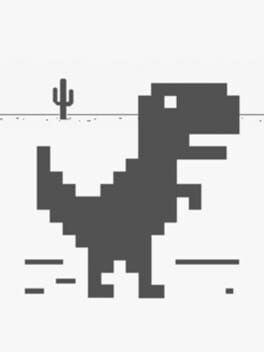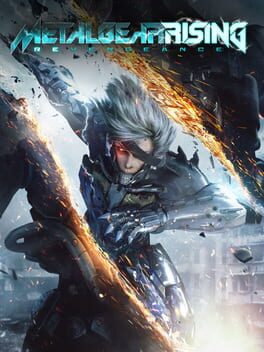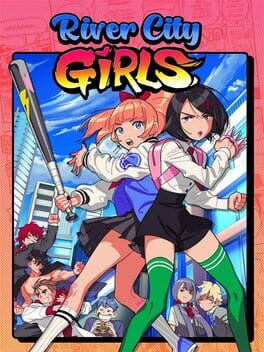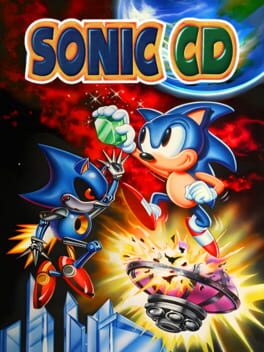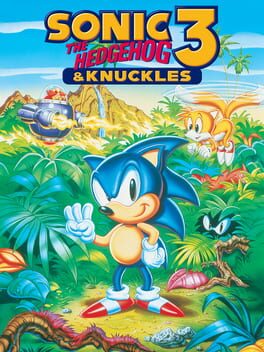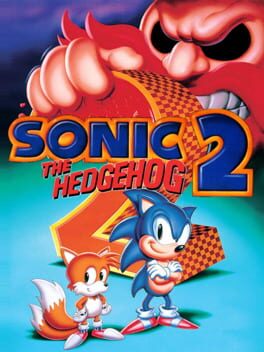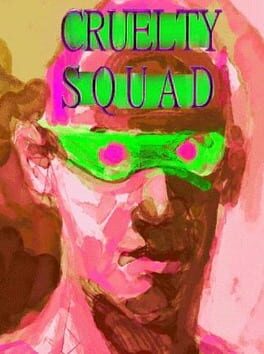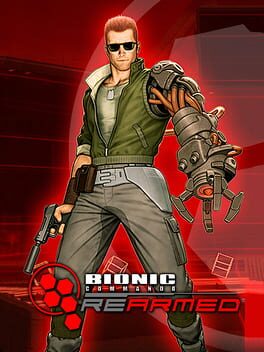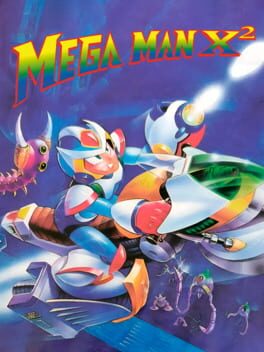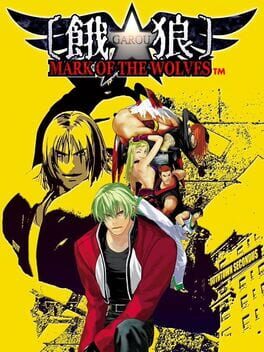steelybel
571 Reviews liked by steelybel
Chrome Dino
2014
EarthBound
1994
In his excellent video review/retrospective from around a decade ago, youtuber Derek Alexander of Stop Skeletons From Fighting (formerly the Happy Video Game Nerd) describes Shigesato Itoi's Earthbound (known in Japan as Mother 2) as "criminally underrated" and "one of the greatest games ever made." The first statement is, happily, no longer correct in the year of 2022. Sure, back when the video was made, Earthbound (and the Mother series as a whole) was a more niche title, heck the only reason I found out about the game and decided to give it a go was through Derek and this video. At this point in time, though in the larger gaming sphere its probably still relatively niche compared to titles like Call of Duty and Fortnite, in the JRPG sphere Earthbound is much more well-known and accessible, thanks to it being released on New 3DS XL and Wii U Virtual Consoles, SNES Mini, and Switch Online Virtual Consoles. The second claim is correct, though I found the reasoning Derek provided in the video was lacking. He claimed that the reason that Earthbound was better than most RPGs is that it has a modern setting and you are playing as a normal young boy and not some medieval, chosen hero. Modern settings in JRPGs are nothing new. They were present in the 90s when Mother 2 came out with titles like Shin Megami Tensei (though you could argue that while it begins in a modern setting, it delves into post-apocalyptic territory quite quickly) and Live A Live (though you could also counter that only a single scenario out of multiple takes place in the modern day). RPGs with modern settings are also present in the current day, with series like Persona taking place in modern day school settings since its inception in 1996 and going on to the recent release of Persona 5 Royal in 2019. I would argue that this was and still is not as unique as many tout it to be. The second point, that you play as a normal boy and not a chosen hero, is false in a few ways. Firstly, technically Ness is a chosen hero, as he was prophesized to defeat Giygas by the Apple of Enlightenment. Its not as prominent of a prophecy or as driving of a force in the plot as in games like Dragon Quest, but its still there. Second, while the trope can be oversaturated in the genre, the claim made implies that the chosen hero archetype is not good inherently, which I definitely disagree with. Such a trope is put to excellent use in games like Dragon Quest III, with Loto/Erdrick growing into that role by becoming a more worldly individual (see my DQ III review for more), but I digress. None of this is at all meant to be an attack on Derek or SSFF, they are one of my favorite channels on YouTube and Derek as the HVGN is one of the three people I credit for helping to foster my love for retro gaming (the others being James Rolfe and NintendoCapriSun). His video on Earthbound is excellent and honestly one of the best he has put out on his channel. The reason I go so in-depth in the beginning of this discussion on the reasons why he loves Earthbound is because rewatching his video made me reflect on why I adore the Mother series and Earthbound so much.
To me, Earthbound stands the test of time not because of originality of setting or of protagonist, but by virtue of its central values of love and empathy. There is no other JRPG series I have experienced that has approached its characters with the level of sincere kindness, empathy, and understanding as the Mother series. In Earthbound, and the Mother series as a whole, Itoi rarely if ever characterizes the enemies you fight as being wholly and purely evil. Characters like Frank or Everdred attack you but you get the sense that they are testing you more than anything. Mr. Carpainter and Geldegarde Monotoli are corrupted by idols or money and under Giygas' influence conduct their terrible deeds, but when you remove the influence they are repentant. Animals and other living creatures that you fight are not "killed," they "become tame." While many have jokingly (or not) chastised games like Pokemon for not having the balls to have their cute little animals die in battle, this fact is thematically relevant in Earthbound since the animals and other creatures are under the influence of Giygas and are otherwise innocent, and its telling of Ness and his friends' compassion that they would not outright kill these opponents.
This humanization of villainous characters is seen most poignantly in Pokey/Porky and Giygas/Giegue. Pokey was already quite an annoying child, and under the influence of Giygas he becomes a constant, nagging thorn in Ness' side throughout the entire game, becoming Giygas' right hand man until the end. Yet, from the beginning he is humanized as when you return him to his house next door after the meteor first crashes, you see signs of abuse in his mother and father when you talk with them. Later on, in Magicant, Pokey appears alone on a bench, saying:
"Ness, you're so lucky...I envy you. Let's be friends forever, alright?"
One could interpret this as the true Pokey appearing to Ness in Magicant, revealing that his true feelings underneath all the villainy and evil deeds are those of a boy abused by his family who just wants the love of a friend. This leaves out the fact that Magicant is a place in Ness' mind and the people, objects, and animals there are more like manifestations of Ness' memories of them. This does not discount the above analysis though, as with this context it can be inferred that the Pokey in Magicant is how Ness views Pokey, which not only hints at the greater truth of his character described above yet never explicitly stated by Pokey himself but also further reinforces the empathy that Itoi imbues in this character. Through all the evil antics, annoying laughter, and attempts to sabotage their journey, Ness sees Pokey as just a lonely and sad child, reaching out for love (an idea perfectly bridged into Mother 3, where in his domain in New Pork City we see a collection of nostalgic items and vehicles from Earthbound, showing that even when Pokey supposedly becomes the ultimately evil Porky, he has retained this human desire for love and companionship and is still holding on to the memory of Ness and his journeys).
The same can be said of Giygas. In Mother (Itoi's magnum opus), Giegue is defeated by Ninten and co through the power of love via the lullaby of Queen Mary, revealed to be Giegue's surrogate mother, Maria, and Ninten's grandmother. In Earthbound, as Giygas, he is torn apart at the reminder of the loss of his mother, and without this mother's love, spirals out of control into an unrecognizable and incomprehensible being of supposedly pure evil, corrupting the creatures of Earth. During the final confrontation, Pokey claims:
"So, isn't this terrifying? I'm terrified too. Giygas cannot think rationally anymore, and he isn't even aware of what he is doing now. His own mind was destroyed by his incredible power. What an all-mighty idiot! Yep, that's what he is! Heh heh heh heh... and you... you will be... just another meal to him!"
Giegue has become Giygas, the all-mighty evil power, and has lost all rationality or agency, needing to be contained by the Devil's Machine...or so the game initially claims. Throughout the final battle, Giygas cries out for Ness, and one of his dialogues is just "...friends..." You could argue that him calling out for Ness is this irrational being still grasping at the last bits of rationality left to focus all of his chaotic evil energy on his goal of defeating Ness to prevent the prophecy of the Apple of Enlightenment, but I see Itoi's empathetic hand in this. Here, Giygas is still wounded from the painful memories of losing Maria, and rather than grow and move forward, he has become distorted and is in many ways like Pokey: a lonely being seeking friendship and love.
Love is the core theme of Earthbound and the Mother series as a whole. There is a reason it is called Mother, after all. The love of not only individual human mothers but Mother Earth permeates the series and is especially poignant in Earthbound. In the same way that heroes like Erdrick in Dragon Quest III mature and become a hero by traveling the world and becoming more worldly, Ness matures and becomes more worldly by traveling all around Eagleland and gathering the Eight Melodies from various "Your Sanctuary" locations, all different places around the Earth. The center of the circle of locations when you bring up the Sound Stone in your inventory looks like the Mother Earth from the logo for the series, further emphasizing Ness gathering the love of Mother Earth to use as his power. Ness gains his power and strength from coming of age: leaving home, venturing off into the great unknown, gaining many friends and companions, yet he always keeps the love of his mother back at home close to his heart, even though he is away. By contrast, Giygas, due to the loss of Maria and his intense pain and anguish, cannot recognize that no matter how far away from him, or whether she is living or dead, Maria's love for him endures. He is too haunted by the pain and loss that he regresses into an incomprehensible mess of emotions, like that of a child, emotions lacking the the logical construction and consistency of maturity. Inside the Devil's Machine, he is a veritable "Boy in the Bubble" of his own regression. A widely circulated fan theory, and one debunked by Itoi himself, is that Giygas' sprite, when viewed in the negative, resembles a fetus. While this was confirmed as not being intentional by Itoi, it fits: Giygas has regressed so much that he is like a fetus, caught in the past of when he was a baby raised by Maria and tormented by the loss that he cannot move forward. Ness and Giygas are perfect foils, and ultimately Ness and co defeat him with prayers sent out to all of your friends and, most importantly, Ness' mother, freeing Giygas from his incomprehensible pain and destroying him with love, in what could be considered euthanasia.
This is what sets Itoi's masterpieces apart from the rest. Earthbound's characters are imbued with such strong love and friendship that you cannot help but love them. Itoi writes his villains with empathy and understanding, not in a hackneyed and overdone "You and I are not that different" manner but in a sincere and vulnerable manner. No other games or JRPGs explore the importance and power of love quite like this one.
Earthbound and Itoi's legacy is not one of quirky dialogue or outlandish difference. It is a melody of love.
To me, Earthbound stands the test of time not because of originality of setting or of protagonist, but by virtue of its central values of love and empathy. There is no other JRPG series I have experienced that has approached its characters with the level of sincere kindness, empathy, and understanding as the Mother series. In Earthbound, and the Mother series as a whole, Itoi rarely if ever characterizes the enemies you fight as being wholly and purely evil. Characters like Frank or Everdred attack you but you get the sense that they are testing you more than anything. Mr. Carpainter and Geldegarde Monotoli are corrupted by idols or money and under Giygas' influence conduct their terrible deeds, but when you remove the influence they are repentant. Animals and other living creatures that you fight are not "killed," they "become tame." While many have jokingly (or not) chastised games like Pokemon for not having the balls to have their cute little animals die in battle, this fact is thematically relevant in Earthbound since the animals and other creatures are under the influence of Giygas and are otherwise innocent, and its telling of Ness and his friends' compassion that they would not outright kill these opponents.
This humanization of villainous characters is seen most poignantly in Pokey/Porky and Giygas/Giegue. Pokey was already quite an annoying child, and under the influence of Giygas he becomes a constant, nagging thorn in Ness' side throughout the entire game, becoming Giygas' right hand man until the end. Yet, from the beginning he is humanized as when you return him to his house next door after the meteor first crashes, you see signs of abuse in his mother and father when you talk with them. Later on, in Magicant, Pokey appears alone on a bench, saying:
"Ness, you're so lucky...I envy you. Let's be friends forever, alright?"
One could interpret this as the true Pokey appearing to Ness in Magicant, revealing that his true feelings underneath all the villainy and evil deeds are those of a boy abused by his family who just wants the love of a friend. This leaves out the fact that Magicant is a place in Ness' mind and the people, objects, and animals there are more like manifestations of Ness' memories of them. This does not discount the above analysis though, as with this context it can be inferred that the Pokey in Magicant is how Ness views Pokey, which not only hints at the greater truth of his character described above yet never explicitly stated by Pokey himself but also further reinforces the empathy that Itoi imbues in this character. Through all the evil antics, annoying laughter, and attempts to sabotage their journey, Ness sees Pokey as just a lonely and sad child, reaching out for love (an idea perfectly bridged into Mother 3, where in his domain in New Pork City we see a collection of nostalgic items and vehicles from Earthbound, showing that even when Pokey supposedly becomes the ultimately evil Porky, he has retained this human desire for love and companionship and is still holding on to the memory of Ness and his journeys).
The same can be said of Giygas. In Mother (Itoi's magnum opus), Giegue is defeated by Ninten and co through the power of love via the lullaby of Queen Mary, revealed to be Giegue's surrogate mother, Maria, and Ninten's grandmother. In Earthbound, as Giygas, he is torn apart at the reminder of the loss of his mother, and without this mother's love, spirals out of control into an unrecognizable and incomprehensible being of supposedly pure evil, corrupting the creatures of Earth. During the final confrontation, Pokey claims:
"So, isn't this terrifying? I'm terrified too. Giygas cannot think rationally anymore, and he isn't even aware of what he is doing now. His own mind was destroyed by his incredible power. What an all-mighty idiot! Yep, that's what he is! Heh heh heh heh... and you... you will be... just another meal to him!"
Giegue has become Giygas, the all-mighty evil power, and has lost all rationality or agency, needing to be contained by the Devil's Machine...or so the game initially claims. Throughout the final battle, Giygas cries out for Ness, and one of his dialogues is just "...friends..." You could argue that him calling out for Ness is this irrational being still grasping at the last bits of rationality left to focus all of his chaotic evil energy on his goal of defeating Ness to prevent the prophecy of the Apple of Enlightenment, but I see Itoi's empathetic hand in this. Here, Giygas is still wounded from the painful memories of losing Maria, and rather than grow and move forward, he has become distorted and is in many ways like Pokey: a lonely being seeking friendship and love.
Love is the core theme of Earthbound and the Mother series as a whole. There is a reason it is called Mother, after all. The love of not only individual human mothers but Mother Earth permeates the series and is especially poignant in Earthbound. In the same way that heroes like Erdrick in Dragon Quest III mature and become a hero by traveling the world and becoming more worldly, Ness matures and becomes more worldly by traveling all around Eagleland and gathering the Eight Melodies from various "Your Sanctuary" locations, all different places around the Earth. The center of the circle of locations when you bring up the Sound Stone in your inventory looks like the Mother Earth from the logo for the series, further emphasizing Ness gathering the love of Mother Earth to use as his power. Ness gains his power and strength from coming of age: leaving home, venturing off into the great unknown, gaining many friends and companions, yet he always keeps the love of his mother back at home close to his heart, even though he is away. By contrast, Giygas, due to the loss of Maria and his intense pain and anguish, cannot recognize that no matter how far away from him, or whether she is living or dead, Maria's love for him endures. He is too haunted by the pain and loss that he regresses into an incomprehensible mess of emotions, like that of a child, emotions lacking the the logical construction and consistency of maturity. Inside the Devil's Machine, he is a veritable "Boy in the Bubble" of his own regression. A widely circulated fan theory, and one debunked by Itoi himself, is that Giygas' sprite, when viewed in the negative, resembles a fetus. While this was confirmed as not being intentional by Itoi, it fits: Giygas has regressed so much that he is like a fetus, caught in the past of when he was a baby raised by Maria and tormented by the loss that he cannot move forward. Ness and Giygas are perfect foils, and ultimately Ness and co defeat him with prayers sent out to all of your friends and, most importantly, Ness' mother, freeing Giygas from his incomprehensible pain and destroying him with love, in what could be considered euthanasia.
This is what sets Itoi's masterpieces apart from the rest. Earthbound's characters are imbued with such strong love and friendship that you cannot help but love them. Itoi writes his villains with empathy and understanding, not in a hackneyed and overdone "You and I are not that different" manner but in a sincere and vulnerable manner. No other games or JRPGs explore the importance and power of love quite like this one.
Earthbound and Itoi's legacy is not one of quirky dialogue or outlandish difference. It is a melody of love.
River City Girls
2019
Sonic CD
1993
never understood the love this one got outside of jingly keys appeal. yeah it's pretty and sounds nice, but i can't say playing it is very fun half the time. good zones are too short and bad ones never feels like they're going to end
when the fucking water level is a highlight in your 2d platformer it's time to start rethinking things
when the fucking water level is a highlight in your 2d platformer it's time to start rethinking things
Sonic the Hedgehog 2
1992
Quake Live
2010
Cruelty Squad
2021
This game. What you are looking at here is one of the few games in its era that accomplished style and flair in a 3d engine. While the quirks of the pivotal grappling movement requires some getting used to, overall you have a very accessible and fun shooter with elements of exploration, platforming, and puzzle solving that all culminate into some fairly memorable and very creative bossfights. Even the ways bosses may end up being reused is extremely fun, adapting to their obvious weaknesses and having more and more witty exchanges with the protagonists.
Also, if you can, grab a controller with a friend to burn through the campaign in co-op, or four controllers for what is possibly some of the silliest versus matches you can get, all owing to some of the creative repurposing of obstacles from the story missions into arenas.
Overall, insanely charming-- However, if there's anything more to consider, it's probably buying the game for that soundtrack alone. Every single song combines the original Bionic Commando's chiptune composition with Simon Viklund's RIDICULOUS skill in merged synth + analog instruments to create total bangers like "Heatwave" or pensive, minimalistic tracks like "Ok, We'll Move".
In the big picture, Rearmed may not be revolutionary, but throw in that artisan soundtrack and standout aesthetic, you'll not only get a fat hidden gem; you're getting a rare inspired miracle from Capcom you just won't ever forget.
Also, if you can, grab a controller with a friend to burn through the campaign in co-op, or four controllers for what is possibly some of the silliest versus matches you can get, all owing to some of the creative repurposing of obstacles from the story missions into arenas.
Overall, insanely charming-- However, if there's anything more to consider, it's probably buying the game for that soundtrack alone. Every single song combines the original Bionic Commando's chiptune composition with Simon Viklund's RIDICULOUS skill in merged synth + analog instruments to create total bangers like "Heatwave" or pensive, minimalistic tracks like "Ok, We'll Move".
In the big picture, Rearmed may not be revolutionary, but throw in that artisan soundtrack and standout aesthetic, you'll not only get a fat hidden gem; you're getting a rare inspired miracle from Capcom you just won't ever forget.
Mega Man X2
1994
Hollow Knight
2017
five hours in, i was really scratching my head as to how this has captured so much love. expectations are hard to control; i went into this knowing it's a lot of people's favorite game, or at least their favorite metroidvania. i pushed through because i'm tired of ten year-old kids looking sad when i tell them i haven't played this game.
it just doesn't feel good to move or interact, especially for the first 5-10 hours without upgrades. the default iframe window makes it possible to get full-combod between enemies and hazards. there is no parry, counter, or escape tool; the shitty dodge doesn't come until lategame. enemy attack animations generally lack unique telegraphs, and since most patterns lean heavily on RNG. you will die many times to unfortunate and unavoidable sequences. ironically, most of the bosses have the same set of attacks! in the end, most combat boils down to rapid zipping back and forth or the occasional pogo cheese for all the enemies that weren't given any vertical awareness.
navigating through the environment is clunky and the map is not polished to support rapid traversal. it's difficult to identify rooms from each other, and there are few landmarks to go by. you'll be checking the map constantly, which often means opening up the full menu to see other neighboring zones. this makes backtracking - the cornerstone of this whole genre - a chore, rather than a satisfying mastery of the environment. meanwhile, movement itself mostly boils down to spam dashing ad nauseum. dashing has a loud, poofy sound effect that quickly wears out its welcome when you're running from one end of a zone to another. after experiencing the pure delight of traversal in Ori 2, this was not a good time.
i love metroidvanias because they're one of the few genres that make you want to poke into every nook and cranny. i love looking at the map and seeing a little sliver of a room i haven't reached yet and scouring all the possible entrance areas. i love using all the late game tools to blast through the early zones that had given me trouble ten hours prior. Hollow Knight just doesn't have enough mastery over its own mechanics or design to provide that experience.
it's not bad. it's pretty decent! it's fine. really. it's. fine. the bugs-all-the-way-down theme is great and the NPCs all have excellent flavor. i'm being a little harsh because on this site, Hollow Knight is in the top 100 highest-rated games of all time - twice. but this genre has been done better before and since.
it just doesn't feel good to move or interact, especially for the first 5-10 hours without upgrades. the default iframe window makes it possible to get full-combod between enemies and hazards. there is no parry, counter, or escape tool; the shitty dodge doesn't come until lategame. enemy attack animations generally lack unique telegraphs, and since most patterns lean heavily on RNG. you will die many times to unfortunate and unavoidable sequences. ironically, most of the bosses have the same set of attacks! in the end, most combat boils down to rapid zipping back and forth or the occasional pogo cheese for all the enemies that weren't given any vertical awareness.
navigating through the environment is clunky and the map is not polished to support rapid traversal. it's difficult to identify rooms from each other, and there are few landmarks to go by. you'll be checking the map constantly, which often means opening up the full menu to see other neighboring zones. this makes backtracking - the cornerstone of this whole genre - a chore, rather than a satisfying mastery of the environment. meanwhile, movement itself mostly boils down to spam dashing ad nauseum. dashing has a loud, poofy sound effect that quickly wears out its welcome when you're running from one end of a zone to another. after experiencing the pure delight of traversal in Ori 2, this was not a good time.
i love metroidvanias because they're one of the few genres that make you want to poke into every nook and cranny. i love looking at the map and seeing a little sliver of a room i haven't reached yet and scouring all the possible entrance areas. i love using all the late game tools to blast through the early zones that had given me trouble ten hours prior. Hollow Knight just doesn't have enough mastery over its own mechanics or design to provide that experience.
it's not bad. it's pretty decent! it's fine. really. it's. fine. the bugs-all-the-way-down theme is great and the NPCs all have excellent flavor. i'm being a little harsh because on this site, Hollow Knight is in the top 100 highest-rated games of all time - twice. but this genre has been done better before and since.
2012, Hell, USA. 2 years after Avatar released Mark Wahlberg, known for his roles in The Bourne Identity and making burgers, once said "If I was on that plane with my kids, it wouldn't have went down like it did. There would have been a lot of blood in that first-class cabin and then me saying, 'OK, we're going to land somewhere safely, don't worry.' " in regards to the tragic accident that occured on that fateful day of September, 2001. I lean on believing him, his claims supported by the fact that his hamburguers are 100% 9/11 proof. It's obvious that he was a man who marched through life to the rhythms of some drum I would never hear.
How do you even wax philosophically about this game? From the utterly incomprehensible neo noir mystery of Correctness, the spook POV of Matchmaker, and the kifsdoeupjvei3esdz0dgfombghoijzw3 of Placebo, this game refuses to be understood. Sheer style carries it while it jumps from one horror inducing plot point to the next like a gibbon in the jungle.
The best way to resume of this game would be "Conspiracies are real, fuck you. Also Twin Peaks The Return rules". It's acutally kinda interesting how it mirrors a lot of the stuff David Lynch had to say in 2017 but in 2005 and in Japan. Your role in this...thing is that of an observer, made privy to the secret and terrible beauty of the modern world. Hard boiled detectives trying their hardest to not succumb to their old wounds in an urban hell that just won't let sleeping dogs lie.
The leviathan we call internet is extremely present through all of this, it's teenagers telling me to kill myself vividly present alongside actual useful information about the shadows that lurk in the 25th Ward. More than in Silver Case, here the net appears as both the messiah and the anti christ, cursing and assisting the protagonists during their journies of self-discovery and unmasking the lethal intentions of bureaucracy.
In summary, I made this review solely to try and get Josh_The_Fourth and have more likes than him like I did on Flower, Sneed and Rain. I didn't get shit on this one, I just wrote stuff to sound cool. I guess society is bad or something? Fuck the Police or the shadow police? There's a high schooler there somewhere too. She sees ghosts I think. Maybe there is no Heaven. Or maybe this is all pure gibberish—a product of the demented imagination of a lazy drunken hillbilly with a heart full of hate who has found a way to live out where the real winds blow—to sleep late, have fun, get wild, drink whisky, and drive fast on empty streets with nothing in mind except falling in love and not getting arrested. Res ipsa loquitur. Let the good times roll.
How do you even wax philosophically about this game? From the utterly incomprehensible neo noir mystery of Correctness, the spook POV of Matchmaker, and the kifsdoeupjvei3esdz0dgfombghoijzw3 of Placebo, this game refuses to be understood. Sheer style carries it while it jumps from one horror inducing plot point to the next like a gibbon in the jungle.
The best way to resume of this game would be "Conspiracies are real, fuck you. Also Twin Peaks The Return rules". It's acutally kinda interesting how it mirrors a lot of the stuff David Lynch had to say in 2017 but in 2005 and in Japan. Your role in this...thing is that of an observer, made privy to the secret and terrible beauty of the modern world. Hard boiled detectives trying their hardest to not succumb to their old wounds in an urban hell that just won't let sleeping dogs lie.
The leviathan we call internet is extremely present through all of this, it's teenagers telling me to kill myself vividly present alongside actual useful information about the shadows that lurk in the 25th Ward. More than in Silver Case, here the net appears as both the messiah and the anti christ, cursing and assisting the protagonists during their journies of self-discovery and unmasking the lethal intentions of bureaucracy.
In summary, I made this review solely to try and get Josh_The_Fourth and have more likes than him like I did on Flower, Sneed and Rain. I didn't get shit on this one, I just wrote stuff to sound cool. I guess society is bad or something? Fuck the Police or the shadow police? There's a high schooler there somewhere too. She sees ghosts I think. Maybe there is no Heaven. Or maybe this is all pure gibberish—a product of the demented imagination of a lazy drunken hillbilly with a heart full of hate who has found a way to live out where the real winds blow—to sleep late, have fun, get wild, drink whisky, and drive fast on empty streets with nothing in mind except falling in love and not getting arrested. Res ipsa loquitur. Let the good times roll.
